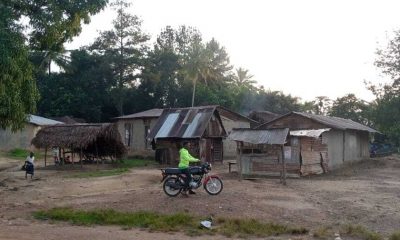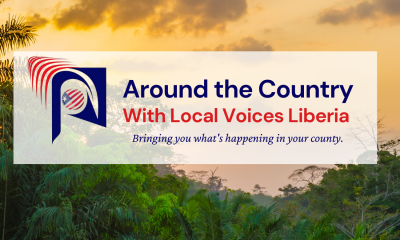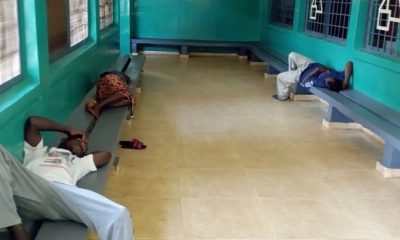
Bong County – People of Bong County have been urged to venture into growing more food as a means of preparing for the economic shock that is widely expected to stem out of the Coronavirus outbreak in the country.
Daniel Bondo, the Chief Executive Officer of the Tonofiakeh Group of Farmers in Suakoko, Bong County, says achieving food security will be “the best way” to support the government’s efforts in combating the pandemic.
Established in 2012, Mr. Bondo’s organization helps elevate food productivity within rural communities in the county. The group, which has 67 members, is involved with growing of vegetables and rice among other food produce.
They have cultivated 25 hectares of low land with rice, which is expected to be harvested before the end of May this year.
“We all know that coronavirus is in Liberia, but that can’t stop us from making our backyard gardens,” Bondo told LocalVoicesLiberia after speaking to members of the organization. “But let me say to you all that if you were not involved with the soil then this is time for you to make maximum use of it.”
Liberia is yet to meet up with the Malabo Declaration for Food and Nutrition Security which mandates African governments to allot not less than 10% of their annual budget for agriculture, something stakeholders in the country’s agriculture sector have constantly expressed concern about.

The Bong County based farmers organization has 67 members who are involved with growing of vegetables and rice and other food produce.
“We all know that coronavirus is in Liberia, but that can’t stop us from making our backyard gardens,” Daniel Bondo , Lead Farmer
Now, with the pandemic already impacting the global economy, agriculturists like Mr. Bondo are concerned about possibility of severe food shortage in rural communities.
He’s also worried that the government would loss revenue which will lead to many people becoming jobless.
He added that rural communities can help the government stop the spread of the virus by being “food-sufficient” while sticking to the preventative measures, which include social distancing and shelter in place – staying home to reduce the risk of coming in contact with an infected person.
“People need to stick to the preventative measures against the spread of COVID-19 in the country but it’s also important to engage into initiatives that will put food on their table,” Bondo suggested, warning that “When the coronavirus escalates in Liberia, things will get very hard, many families will not have food to eat.”
Bondo continued: “Knowing squarely that we depend on other countries like China and India for our stable food – rice. And today these two countries are badly hit by the coronavirus. Do you think they will supply us when their people continue to die?
“People need to begin taking steps in making our country food sufficient. When we the common people including public officials adopt these steps, it will greatly help the agriculture sector.”
He recalled how the Ebola epidemic between 2014 and 2016 disrupted the country’s economic activities thereby causing hardship for many rural families.
At the same time, Alfred Spenser, a local farmer with the project, said with his large family of 21 persons, he relies on “agriculture to feed” them.
He is also confident that “growing more food will help us fight this Coronavirus”.
Spenser urged Liberians to start growing more food as fear the COVID-19 fear, emphasizing that rural farmers must be more steadfast and the government should “give support to local farmers across the country”.
Local Voices Liberia is a network of dedicated Liberian journalists based in the 15 counties working to lift the development concerns and progress of rural communities.


Methodology

True
The claim is rigorous and the content is demonstrably true.

Half True
The statement is correct, although it needs clarification additional information or context.

Unproven
Evidence publicly available neither proves nor disproves the claim. More research is needed.

Misleading
The statement contains correct data, but ignores very important elements or is mixed with incorrect data giving a different, inaccurate or false impression.

False
The claim is inaccurate according to the best evidence publicly available at this time.

Retraction
Upon further investigation of the claim, a different conclusion was determined leading to the removal of the initial determination.

Toxic
A rude, disrespectful, or unreasonable comment that is somewhat likely to make you leave a discussion or give up on sharing your perspective. Based on algorithmic detection of issues around toxicity, obscenity, threats, insults, and hate speech;
































































































































































































































































































































































































































































































































































































